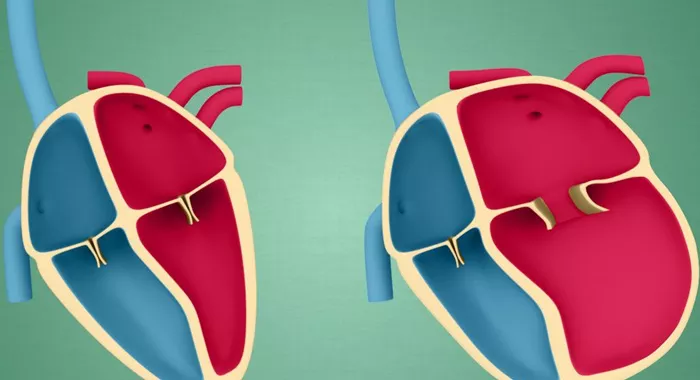Cardiomyopathy is a group of diseases that affect the heart muscle. This condition can cause the heart to become enlarged, thickened, or rigid, leading to difficulties in pumping blood efficiently throughout the body. Understanding the signs and symptoms of cardiomyopathy is crucial for early diagnosis and treatment. In this article, we will explore four key signs of cardiomyopathy that individuals should be aware of to seek timely medical intervention.
4 Signs of Cardiomyopathy
1. Shortness of Breath
Shortness of breath, medically known as dyspnea, is one of the most common and early signs of cardiomyopathy. This symptom can occur both during physical exertion and at rest, progressively worsening as the disease advances.
Why Does Shortness of Breath Occur?
In cardiomyopathy, the heart’s ability to pump blood effectively is compromised. This inefficiency leads to a buildup of fluid in the lungs, a condition known as pulmonary congestion. The accumulation of fluid in the lung tissues makes it difficult for oxygen to be transferred into the bloodstream, resulting in shortness of breath.
Symptoms and Experiences
Patients with cardiomyopathy often describe feeling winded or out of breath during activities that previously did not cause such discomfort. As the condition progresses, even simple tasks such as climbing stairs, walking short distances, or lying flat may provoke shortness of breath. Some patients may also experience orthopnea, a condition where they find it difficult to breathe while lying down and may need to elevate their head with pillows to sleep comfortably.
Impact on Quality of Life
Shortness of breath can significantly impact the quality of life for individuals with cardiomyopathy. It can limit their ability to perform daily activities, engage in physical exercise, and maintain an active lifestyle. As a result, patients may experience a decline in overall health and well-being.
SEE ALSO: Types of Heart Failure Medications
2. Fatigue and Weakness
Fatigue and generalized weakness are common symptoms associated with cardiomyopathy. These symptoms can be debilitating and interfere with a person’s ability to function normally in their daily life.
Causes of Fatigue and Weakness
The heart’s impaired ability to pump blood efficiently means that less oxygen-rich blood reaches the body’s tissues and organs. This reduced oxygen supply can lead to a feeling of constant tiredness and lack of energy. Additionally, the heart may compensate for its weakened state by working harder, which can further deplete the body’s energy reserves.
Symptoms and Experiences
Patients with cardiomyopathy often report feeling exhausted after minimal exertion. Activities such as walking, climbing stairs, or even standing for extended periods can leave them feeling drained. This persistent fatigue can make it challenging to maintain employment, care for oneself, and participate in social activities.
Impact on Mental Health
The chronic fatigue associated with cardiomyopathy can also take a toll on a patient’s mental health. Feelings of frustration, hopelessness, and depression are not uncommon as individuals struggle to cope with their reduced physical capabilities and the limitations imposed by their condition.
3. Swelling in the Legs, Ankles, and Feet
Swelling, medically known as edema, particularly in the lower extremities, is another hallmark sign of cardiomyopathy. This symptom results from the heart’s diminished ability to pump blood effectively, leading to fluid retention in the body.
Mechanism of Edema
When the heart’s function is compromised, it cannot circulate blood efficiently. This inefficiency causes blood to back up in the veins, leading to increased pressure and fluid leakage into the surrounding tissues. The excess fluid typically accumulates in the legs, ankles, and feet due to gravity, especially when a person is standing or sitting for prolonged periods.
Symptoms and Experiences
Edema can manifest as swelling, puffiness, or a feeling of heaviness in the affected areas. Patients may notice that their shoes or socks leave indentations on their skin, indicating fluid retention. In severe cases, the swelling can become pronounced and extend up to the thighs and abdomen.
Impact on Mobility and Comfort
Swelling in the lower extremities can cause discomfort and pain, making it difficult for individuals to walk or move around.
The skin over the swollen areas may become tight and stretched, leading to further discomfort. Edema can also interfere with sleep, as lying down may exacerbate the swelling and cause additional distress.
4. Irregular Heartbeats (Arrhythmias)
Irregular heartbeats, or arrhythmias, are a significant and potentially dangerous sign of cardiomyopathy. These abnormal heart rhythms can range from harmless to life-threatening and require careful monitoring and management.
Types of Arrhythmias
Arrhythmias associated with cardiomyopathy can include tachycardia (abnormally fast heart rate), bradycardia (abnormate), and atrial fibrillation (irregular and often rapid heart rate). These irregularities can disrupt the heart’s ability to pump blood effectively and increase the risk of complications such as stroke or sudden cardiac arrest.
Symptoms and Experiences
Patients with arrhythmias may experience palpitations, which are sensations of the heart pounding, fluttering, or skipping beats. These sensations can be unsettling and may be accompanied by dizziness, lightheadedness, fainting, or chest pain. In severe cases, arrhythmias can lead to loss of consciousness or sudden cardiac arrest, which requires immediate medical attention.
Impact on Daily Life
Living with arrhythmias can be challenging and anxiety-inducing. Patients may feel constantly aware of their heart’s irregular beats, leading to stress and worry about potential complications. The unpredictability of arrhythmias can also make it difficult to engage in physical activities or plan daily routines, further impacting the individual’s quality of life.
Conclusion
Cardiomyopathy is a serious condition that affects the heart muscle, leading to various symptoms that can significantly impact an individual’s health and quality of life. Recognizing the signs of cardiomyopathy, such as shortness of breath, fatigue and weakness, swelling in the legs, ankles, and feet, and irregular heartbeats, is crucial for early diagnosis and treatment. If you or someone you know is experiencing these symptoms, it is essential to seek medical attention promptly to manage the condition effectively and prevent further complications. Through timely intervention and appropriate care, individuals with cardiomyopathy can lead healthier, more fulfilling lives.

